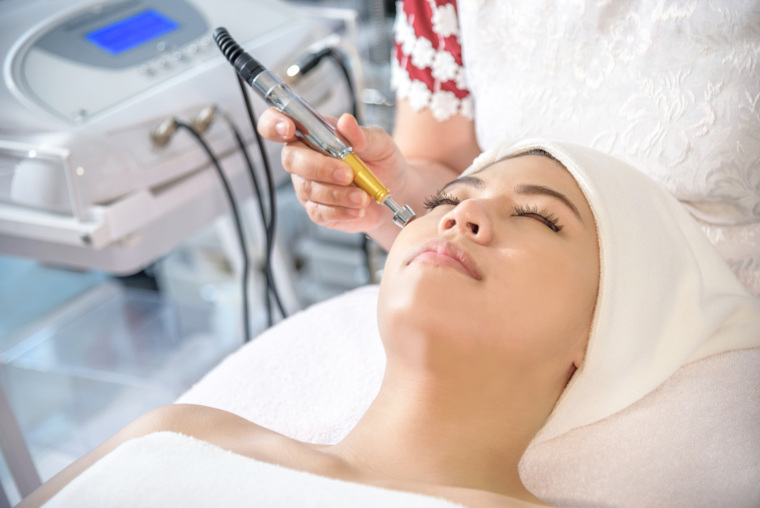

09.10.2025
1254
What is it about? Healthcare in Dubai is of a high standard, but it is free only for UAE citizens. Residents and foreigners must purchase insurance. Healthcare in Dubai is not cheap, as doctors are highly qualified and clinics are furnished with advanced equipment.
What to pay attention to? Opting out of medical insurance is not advised, as fines are imposed for absence or expiry of the insurance policy. In Dubai, insurance must exceed the minimum coverage level set by the government, and employers are obligated to arrange it for invited employees.
The healthcare system of the United Arab Emirates (UAE) is distinguished by its high level of medical services, which can be compared to the best global standards.
Annually, the country allocates over 3% of its GDP to healthcare, exceeding the figures of many developed European countries. These significant investments have enabled the UAE to build first-class medical infrastructure in both public and private clinics.
 Image source: EliteExposure / shutterstock.com
Image source: EliteExposure / shutterstock.com
To maintain such a standard, leading specialists from around the world are invited to work in the country, being offered highly competitive conditions and salaries.
Medical facilities are furnished with the latest technologies and equipment, employing the most modern treatment methods and advanced pharmaceuticals. The result? More and more Emiratis who previously travelled abroad for treatment now prefer to receive high-quality medical care at home.
UAE citizens are entitled to free medical services in public institutions. Healthcare in Dubai is also accessible to tourists, although insurance is not mandatory for them. However, travellers have the option to purchase a health card, which provides a 50% discount on treatment at various clinics.
The card costs approximately 180 dollars per year. Healthcare in Dubai for foreigners is organised in such a way that many tourists and expats also have access to high-quality treatment in local hospitals, making the Emirates an attractive destination for medical tourism.
The quality of healthcare services in the UAE is carefully monitored by several regulatory bodies. These include the Ministry of Health and Prevention, as well as the health authorities of Abu Dhabi, the Emirates, and Dubai.
These departments coordinate the work of the entire healthcare system, ensuring that it meets global standards and remains accessible to all.
The medical insurance system in Dubai is governed by Law No. 11 of 2013, which mandates compulsory medical insurance for all residents.
This requirement aims to protect the health of everyone, whether UAE citizens or expats working and residing in the emirate. Moreover, the insurance covers their dependents, which ensures access to medical services for all segments of society.
A key aspect of the law is mandatory medical insurance for all residents. Simply being in the country is not enough — an active insurance policy is required. The fine for non-compliance can reach AED 500 for each month without insurance. Without a valid medical policy, difficulties will arise when attempting to extend a visa.
Employers are obligated to provide such policies for their expatriate employees. However, this obligation does not extend to their families; insurance for dependents must be arranged separately. Employers who fail to meet these obligations may face serious fines — ranging from AED 500 to AED 150,000 depending on the violation.
Healthcare in Dubai for Russians is also governed by these rules, and the same mandatory medical insurance requirements apply to expatriates from Russia working in the emirate. This ensures equal access to medical services and helps avoid financial risks associated with paying for treatment.
To ensure the accessibility of medical services for all residents, a special insurance plan was created — the Essential Benefits Plan (EBP). It is aimed at people with low income (less than AED 4,000 per month), as well as their dependents and domestic help.
EBP provides basic medical services such as emergency care, outpatient and inpatient treatment, tests, and surgical operations. The annual coverage limit is AED 150,000, making this plan sufficiently reliable for most medical situations.
The cost of EBP varies depending on the category of the insured person. For most dependents (aged 0 to 65) and domestic help, the policy cost starts at AED 650.
For non-working women aged 18 to 45, the policy cost is higher — around AED 1,600. However, for relatives over 65 years old, who most often need medical services, the insurance policy cost starts at AED 2,500.
However, it should be noted that EBP is a minimum plan that requires the insured person to participate in paying for medical services. For example, for each doctor's visit, the patient pays 20% of the cost, but no more than AED 500 per visit and no more than AED 1,000 per year.
Regarding medications, insurance covers 70% of their cost, but with an annual limit of AED 1,500. These measures help control healthcare costs while maintaining a balance between accessibility and insurance effectiveness.
Like any other insurance policy, EBP has limitations. For instance, during the first six months, the policy does not cover the treatment of chronic diseases. At the same time, the policy provides coverage for treating serious illnesses such as cancer and hepatitis C, without established limits on medical service payments.
For pregnant women, the EBP system provides special conditions. Insurance includes regular tests, ultrasound examinations, and doctor's visits during pregnancy. For natural childbirth, there is a coverage limit of AED 7,000, and for caesarean section — AED 10,000.
Although the basic EBP plan is sufficient for most residents, it does not cover treatment outside of Dubai. Therefore, for those who frequently travel or prefer treatment abroad, a private policy with international coverage may prove more useful.
 Image source: PeopleImages / shutterstock.com
Image source: PeopleImages / shutterstock.com
Despite the advantages of EBP, many Dubai residents choose private medical policies. They offer a higher level of service, including a wide range of medical services and higher coverage limits. Private policies also allow you to choose a clinic or doctor and provide the opportunity to receive medical care outside the country.
Registration in the UAE healthcare system for foreigners is an important step that provides access to the country's medical services. The health card registration procedure can be completed online through Emirates Health Services, which significantly speeds up the process and makes it convenient.
Before starting, ensure your Emirates ID is active, as this is a mandatory requirement for application submission.
The first step is registration in digital services if this hasn't been done already. The health card application can be submitted through a special smart service, available both online and at typing centres.
Note that for expatriates, the service cost is AED 500. Additional processing fees are also charged: 3 dirhams when paying via e-Dirham and additional commissions when using Visa or Mastercard.
After submission, the application undergoes a verification process. In case of a favourable outcome, you will receive a text notification. An important detail of the system is that physical health cards are no longer issued — all data is automatically linked to your Emirates ID, which simplifies access to medical records.
For foreign citizens, the health card is valid for one year. It is very important to renew it on time: this can be done one month before expiration. If your application is rejected, the system provides the opportunity to make changes and resubmit it.
Registration in the UAE healthcare system is mandatory for all residents and workers, as it provides access to quality medical services and ensures health protection throughout the entire period of residence in the country.
Healthcare in Dubai for tourists has now become much more accessible thanks to such innovations, allowing quick access to all the necessary services.
In recent years, Dubai has established itself not only as a global tourist centre but also as an important player in the world healthcare market.
Of the 143 operating hospitals, 75% are certified according to international JCI (Joint Commission International) standards. Dubai's medical facilities offer a unique combination of luxury, advanced technology, and high treatment standards.
 Image source: Volha_R / shutterstock.com
Image source: Volha_R / shutterstock.com
Dubai's healthcare stands out not only due to high technology and qualified personnel but also because of its multicultural environment. Doctors and medical staff are fluent in Arabic and English; some clinics offer services in other languages, which is especially convenient for tourists.
Address:
Clemenceau Medical Center — one of the city's leading clinics — specialises in general surgery, orthopaedics, cardiac surgery, and oncology. The organisation's arsenal includes the Da Vinci robotic system, which ensures highly precise operations with minimal risks.
The centre's doctors, certified in the USA, UK, and EU countries, confirm the high level of professionalism and compliance with international standards. The clinic can accommodate 100 patients and offers world-class comfort.
Address:
American Hospital Dubai also stands out for its achievements in robotic surgery. It is one of the first clinics to implement robotic systems for complex operations.
The hospital is accredited by the American Institute of Ultrasound in Medicine, which is a unique achievement outside of the USA. The clinic specialises in cardiology, oncology, neurosurgery, and diabetes treatment.
Address:
Dr. Sulaiman Al Habib Hospital is a multidisciplinary clinic in Dubai offering a wide range of medical services: from cardiac surgery and neurosurgery to aesthetic surgery and IVF.
The organisation is JCI certified and actively participates in Dubai's medical tourism programme. This provides access to high-quality services for patients from around the world seeking treatment from internationally qualified specialists.
Address:
Mediclinic City Hospital, which opened in Medical City in 2008, is one of Dubai's key medical institutions. The clinic's specialists work in areas such as cardiology, obstetrics, orthopaedics, and endocrinology.
The building has its own diagnostic centre, which allows for prompt diagnoses and highly effective treatment methods. Robotic operations are also actively used, emphasising the clinic's commitment to innovation.
Address:
The American Academy of Cosmetic Surgery Hospital stands out among other institutions, specialising in cosmetology and aesthetic surgery. The clinic also offers weight loss and IVF services.
 Image source: Kamonchai / shutterstock.com
Image source: Kamonchai / shutterstock.com
The comfort level there is comparable to luxury hotels, and JCI certification confirms its market leadership. The organisation attracts not only local patients but also international clients seeking the highest level of service.
Obtaining medical insurance is a mandatory requirement that must be fulfilled before arriving in Dubai. Without a valid insurance policy, you will not be able to pass border control.
To receive quality medical care, it is advisable to choose clinics that have JCI (Joint Commission International) accreditation. This indicator demonstrates that the clinic meets strict international standards for safety and quality of medical services.
The UAE maintains strict control over the import of certain medicines. Special permission from the UAE Ministry of Health and Prevention (MOHAP) is required for importing many medications, especially those containing narcotic or psychotropic substances and opiates.
Dubai's healthcare attracts attention due to its high level of service and modern standards. Both public and private clinics operate there, providing a variety of medical services.
UAE citizens can receive free treatment in public institutions, while expats and tourists have the opportunity to receive quality medical care on a paid basis. This approach makes medical services accessible and effective for everyone in Dubai.
Article header image source: voronaman / shutterstock.com